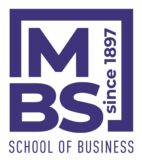French borders to reopen gradually for international students from july 1st
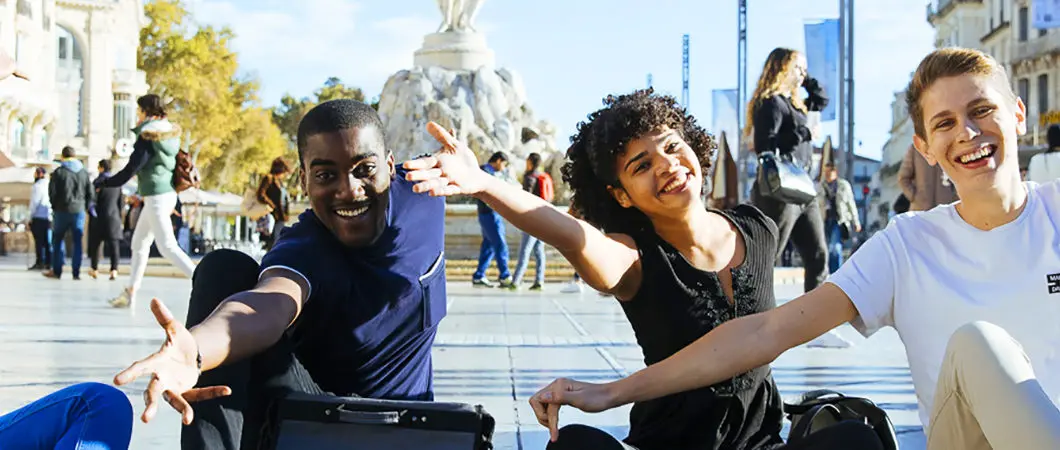
In a common press release published on Friday 12 June 2020, the French minister for Europe and foreign affairs and the minister for internal affairs announced the gradual reopening of borders.
Since 15 June 2020, France lifted all restrictions on movement at its European internal borders.
Starting on July 1st, international students will be allowed to enter the French territory, regardless of their country of origin. Support arrangements will be facilitated. Their visa and residence permit applications will be processed in priority.
To know more, please don’t forget to check Campus France website.
AG2R LA MONDIALE, a major partner of Montpellier Business School, is committed to the Social Entrepreneurship & Inclusion Chair.
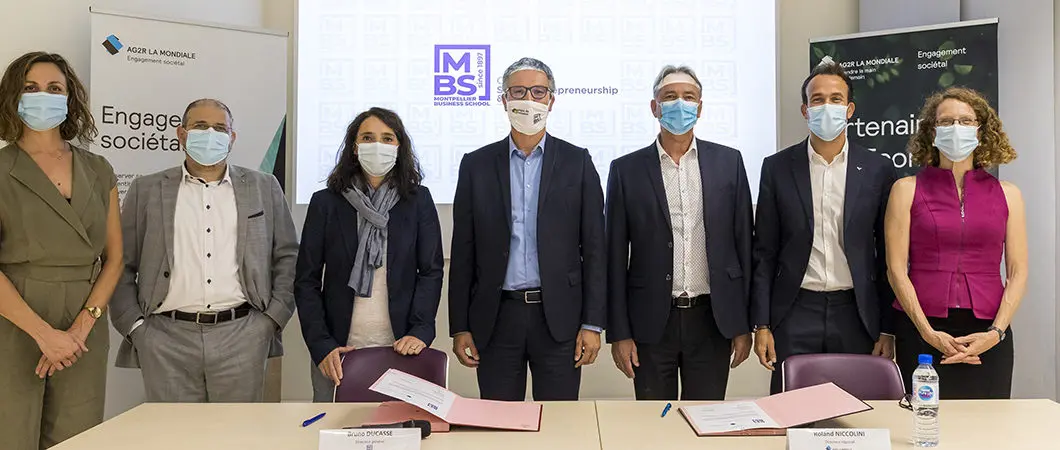
A new support based on the common values of social innovation and accessibility to employment
From the start of the 2020 academic year, AG2R LA MONDIALE renewed its commitment with Montpellier Business School through a new partnership with the Chair of Social Entrepreneurship and Inclusion. This new support provides financial support for three years to the Chair headed by Walid Nakara. A progress review will be carried out at the end of each year to assess the progress and impact of this innovative programme.
“We have a common goal: promoting innovation and social entrepreneurship, developing inclusion in all businesses and supporting and training the people least likely to find a job to start their own business and work in the Social and Solidarity Economy (SSE),” explains Dr. Walid Nakara, Teacher-Researcher and Chair Holder.
AG2R LA MONDIALE, a major partner strongly involved in MBS’s inclusion policy
A major partner since 2018, AG2R LA MONDIALE is involved in the training of all talents, by supporting the MBS Foundation for Equal Opportunities and by welcoming work-study students from Montpellier Business School and covering all their tuition fees.
Within the framework of this new partnership with the Chair of Social Entrepreneurship & Inclusion, “a virtuous circle will be created between AG2R La Mondiale’s teams specialising in the sale and takeover of companies, the social and tax expertise of employees and self-employed workers, and the Chair headed by Walid Nakara” explain Roland NICCOLINI, Regional Director for Occitanie Languedoc-Roussillon AG2R La Mondiale and Frédéric SOULIE, in charge of the Group’s Social Activities Department for the region.
This partnership was made possible thanks to the agreement of the members of the AG2R LA MONDIALE Regional Social Action Commission.
Why get involved with the Chair of Social Entrepreneurship & Inclusion?
Created in March 2019, the Social & Inclusion Entrepreneurship Chair is part of the two components of the Yunus Centre of MBS and federates an ecosystem in favour of a social and solidarity economy, bringing together companies, higher education, research and people in need of support and training.
The Chair seeks to promote the SSE and the fight against precariousness by training people excluded from employment so that they can acquire key entrepreneurial skills for professional integration.
The Social & Inclusion Entrepreneurship Chair also designs training modules to help students and young people to undertake differently and to become actors in a world undergoing social and ecological transformation. The organisation of Rob Hopkins’ visit to the MBS campus was part of this dynamic.
This new partnership with AG2R LA MONDIALE will be put forward at the beginning of the next school year. In the meantime, if you want to know more about the Social Entrepreneurship and Inclusion Chair, click here.
Pauline Mercier, a work-study student in her final year of the MBS Grande Ecole Program, founded "Don't be cloudy", a free concept that makes the world of cloud computing accessible to all.
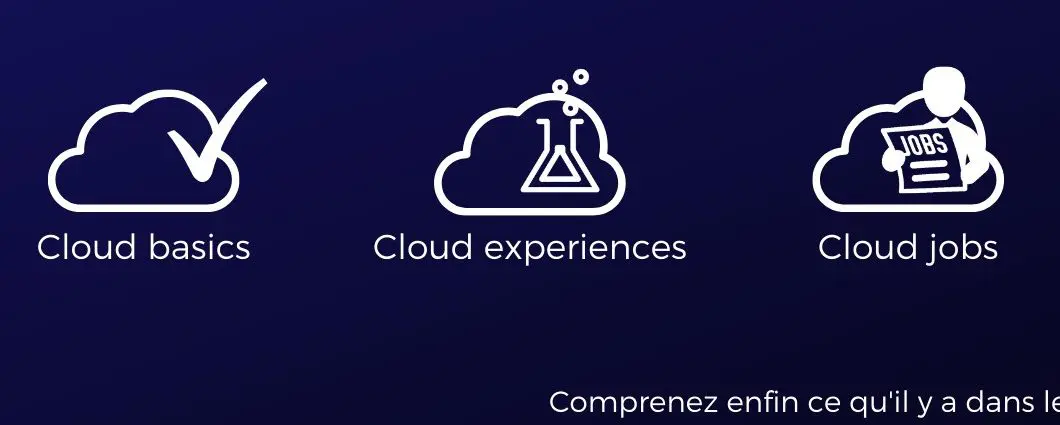
An idea born from his experience in work-study and double-degree programs
Pauline Mercier is a work-study student in her final year of the Grande Ecole Program. She chose to complete her MBS training with a double degree in partnership with the IAE of Montpellier to acquire further expertise in information systems.
Pauline is also currently working as a Business Analyst at Microsoft in Paris and she dives headfirst into the clouds on a daily basis! “When I tried to explain my daily life to my family and friends, I realized that they didn’t really understand the concept of cloud computing. That’s why I had to come up with something to demystify the concept,” she explains.
Helping to understand how much “cloud” we consume on a daily basis
To make understanding the Cloud accessible to all, Pauline has imagined “Don’t be Cloudy”, an offer of educational content that popularises this solution that we all use every day without knowing it.
“The Cloud is not just about our Google Drive with its holiday photos that we share with our friends. We don’t realize it, but we use it absolutely every day. When you watch a series on a digital platform, when you test a photo filter on an application, when you order take-away food, when you open an email… Even if it’s invisible, it quickly becomes energy-consuming! To consume responsibly, you have to know what you’re consuming. This also works with the Cloud,” adds Pauline.
Contributing to the digital transition of businesses
In her everyday life, Pauline holds one of these “new” digital jobs that require agility between management science skills and information systems technical skills. “I work as closely as possible with the sales teams by monitoring the performance and sales strategy of the Sales Specialists. They are the ones who sell cloud solutions to large French companies preparing for the digital world of tomorrow. I see everyday projects that integrate Artificial Intelligence, IoT, Big Data… It’s like getting up in the morning to go into the future,” says Pauline.
With “Don’t be cloudy”, Pauline’s objective is twofold. First of all, it is about learning, discovering and following the cloud computing news in a simple and fun way on Instagram: @dontbecloudy.
But the Business Analyst also wants to organise events with several expert speakers. “There will be three types of presentations. Cloud basics (1), so that managers, SMEs or enthusiasts understand the world of cloud computing in order to better exploit it in their daily lives; cloud experiences (2), to get inspiration from real digital transformation projects in different structures, and cloud jobs (3), to get an overview of new cloud related jobs and companies that are recruiting in the field. »
“When we think of cloud, we think of computing, storage, networks, technology… And the concept can quickly become confusing. I would like to make the world of Cloud computing more fun, to promote its new jobs but also to address its limits. I’m not just talking about technical limits, the idea is also to question the CSR dimension of the Cloud, its polluting side or its relationship with the concept of data and privacy,” concludes Pauline.
Follow Pauline’s adventures and discover “Don’t be cloudy”:
Montpellier Business School trains its students in sustainable development to help them become active actors in a world in transition
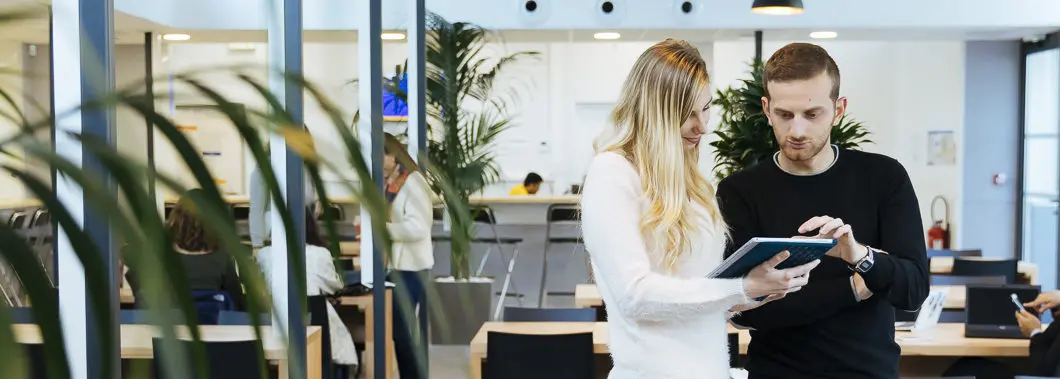
Today, nearly 25% of Montpellier Business School’s research publications include CSR-related issues, and MBS is also one of the Grandes Ecoles that offers the most teaching hours on this particular subject.
An example of a module is Dr. Helen Etchanchu’s “Globalization” course, which teaches the foundations of sustainable development on a global scale. With the Covid-19 crisis, some weaknesses of globalised capitalism have been highlighted in real time. The objective of this course is to develop students’ understanding of the complexity of modern economics so that they can become active actors in the world in transition.
“Imbue the student with the challenges of the globalized world to better imagine the new world. »
Within the Bachelor Program, Dr. Helen Etchanchu gives an interactive course on globalization. “The aim is to help the student analyse the main cross-cutting perspectives that make up the system we know today. In this course, the student does not only deal with the economy but also with political, historical, societal, ecological and technological issues.” says Dr. Helen Etchanchu.
Prior to reinventing today’s world, students are imbued with the challenges of today’s globalized world: “They quickly understand that our system is in constant motion and is subject to two trends: a trend of convergence, which wants even more open markets, and a trend of divergence, driven by a populist impulse that advocates more self-containment.” explains Dr. Helen Etchanchu.
“The system as we know it is effective in optimizing costs but is vulnerable. One of its main threats is pandemic, and we are currently experiencing this phenomenon with Covid-19.” she adds.
Exercises based on the United Nations Sustainable Development Goals and a simulated COP
After mastering the theory, students can move on to practice. “One of the many debates that animate the course is based on the organization of a role play and the simulation of a COP. The students represent the different member countries, submit an action plan and negotiate with the other parties for a climate agreement.” says Dr. Helen Etchanchu. Following the decisions they have made, the students use software to discover the impact of their choice on the economic, environmental and societal world.
The participants were also invited in a second phase to build an innovative business model to meet one of the 17 United Nations sustainable development goals. From small local social business to large multinationals, students had the choice to propose a possible reorganization and achieve one of the 17 objectives.
“My favourite was the group of students who worked on the goal of gender equality. They had chosen a multinational company that communicates effectively on the subject. But after a proper research work, the group spotted the inconsistencies in the company’s practices and understood that the actions were essentially part of a communication strategy. They then compared this business model to another company and were able to assess the difference with a company that places sustainable development issues at the heart of its mission.” says Dr. Helen Etchanchu.
We will meet these values again at the start of the new school year 2020-2021
Dr. Helen Etchanchu is co-coordinator of the MBS Sustainability Lab and seeks to strengthen the already established integration of sustainability concepts in training courses. “The aim is to shape the programs so that every student is made aware of these concepts early on in their program. The objective is to shape the programs so that each student is aware of these concepts very early in their curriculum,” she explains.
Thus, Montpellier Business School is currently preparing for the start of the new school year, which will be driven by the climate challenge, with a series of workshops to stimulate students’ willingness to invent new alternatives as soon as they join the school. The programme for this new school year will be known in a few weeks.
Managing diversity and inclusion: participants of the Executive MBA issue their recommendations to companies
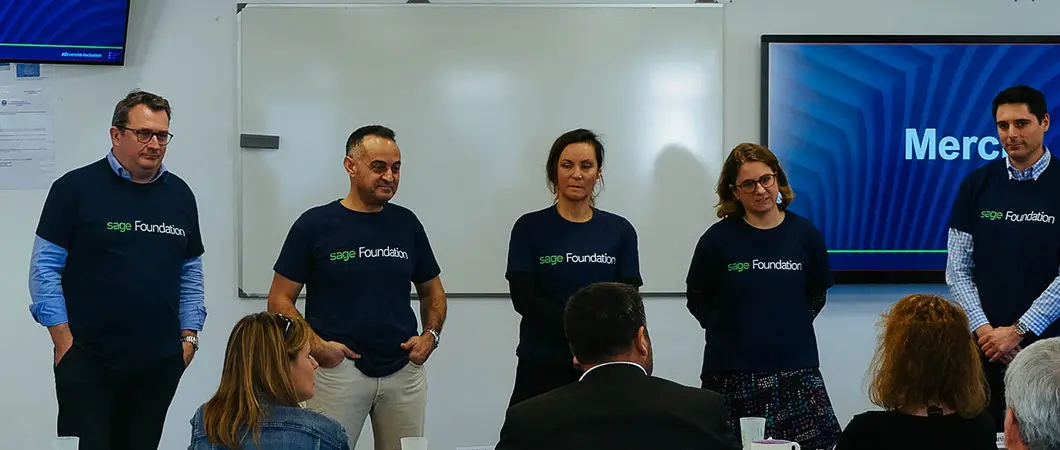
An exercise based on a real business challenge
Last December, participants of the Executive MBA of Montpellier Business School discovered the CSR (corporate social responsibility) module, a part of their educational program where 5 companies share the challenges of diversity and inclusion in a recruitment context and while providing accompaniment to the employees or management teams.
“The participants visited Auchan, Sage, Sanofi, Orange, and AFPJR in order to deliver both a realistic diagnosis of the company’s situation in terms of diversity and provide expert recommendations at the end of their immersion period 3 months later,” explains Catherine Deiana, Educational Manager of the Executive MBA Program.
Fieldwork aiming to kick start in-depth debates and involve all employees
Accompanied by 4 MBS Researchers, the participants of the Executive MBA were first challenged on their methodology. “The aim for the participants was to go beyond what was put in place by the Human Resources departments. The goal here was to involve all managers so not to limit reflection to a specific analysis of data, but to integrate the qualitative feedback from the teams and thus have a chance to identify inconsistencies in the field despite the inclusive DNA that a business can bring to play,” says Dr Maryline Meyer, unit manager.
Recommendations that go beyond the company’s scope
On March 13, EMBA participants had the opportunity to present their work to a jury made up of partner companies and expert researchers specialised in the subject. “We have put a lot of systems in place to respond to the challenges of inclusion, especially when it comes to the representativeness of women in the field of IT development. Today, I expect the restitution we’ve made to provide reassurances as well as frameworks for the upcoming projects we choose not to divulge,” explains Marie-Claude Chazot, Southern Europe HRD at Sage.
Among all the recommendations issued to the companies, several main categories stand out. First, reviewing or implementing measurement tools supported by an inclusive managerial policy: “For instance, major decision-making meetings taking place after 6 pm are very likely censoring employees with children,” says Sylvie, EMBA participant.
But very often, the participants encouraged companies to leave their perimeter in order to familiarise themselves with obstacles that are usually only visible at the beginning of the recruitment process. “Reverting to the example of IT development, women are also much underrepresented in training. The idea is to involve companies in the orientation of new generations, by surrounding themselves with expert associations specialised in the questions of diversity, inclusion, and the discovery of professions such as La main à la pâté, Face Hérault, or even the second chance schools,” concluded the participants.
Les Cordées: a new series of workshops to strengthen the soft skills of young people from the priority neighbourhoods
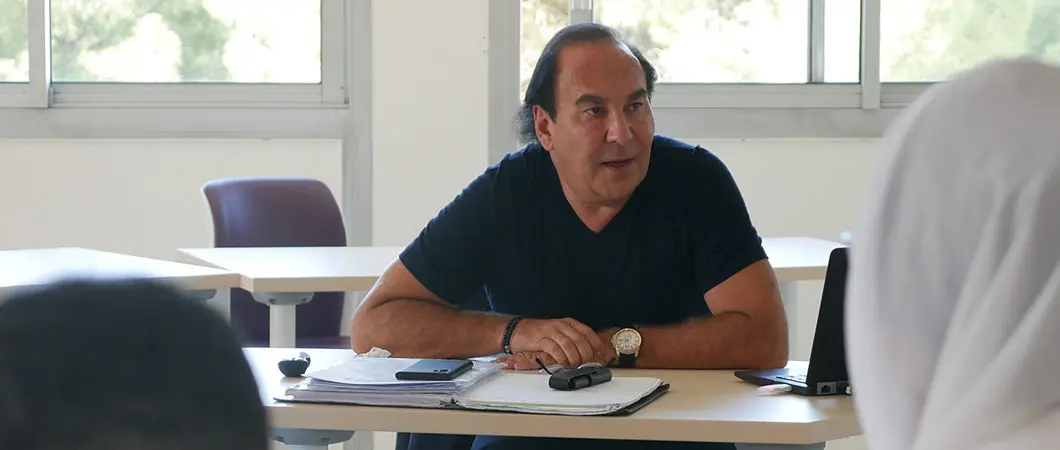
A programme to support deserving young people from priority neighbourhoods
The Parcours d’Excellence (Paths to Excellence) are a programme of support for young people enrolled in the Cordée Schools from the 3rd grade (Year 10 in the UK and ninth grade in the US) to the baccalaureate (A levels in UK and high school diploma in the US). They aim to encourage discovery and understanding of student life and higher education by offering visits to universities, corporate events, cultural stays and personal development workshops on the campus of MBS.
Each year, 75 new pupils join the scheme at the start of the school year. “The aim of this scheme is to promote social diversity, demystify excellence in education and to present the keys to professional success to young people. The goal is not to introduce them to MBS, but to make them discover the whole spectrum of possible curriculums,” explains Benjamin Ferran, Head of Diversity and CSR.
Keeping high school students in the plan
While they were created for secondary school pupils from priority neighbourhoods, the Parcours d’Excellence will undergo a transformation this year by including a series of workshops for high school students as well. “This new concept is based on student volunteering and the aim is to keep the young people in this scheme to contribute as much as possible to the success of their studies“, explains Sophie Fournials, Social Openness Project Manager at MBS.
A series of workshops has thus been designed: “Communicate better to better convince” and “Know yourself better to get a better guidance”. These exercises focus on the development of soft skills and self-knowledge. “In parallel, we are planning campus visits to the faculties of medicine, law and the School of Journalism so that these students, who currently have to make their choice of orientation, can project themselves in the future. We have also planned a visit to Sanofi for those who are considering a career in engineering, but also to introduce them to the world of business“, says Sophie.
“A real opportunity to train for baccalaureate exams”
On Wednesday, March 11th, several high school pupils of all levels went to the workshop and public speaking given by Franck Dompietrini: “The objective is to share advice that will be useful to them at school, during their journey but also in life. These workshops allow a close exchange of ideas, using the rules of individual coaching to enable them to develop their verbal and non-verbal skills, their charisma and their listening skills ».
Dalal, who is in first grade (Year 12 in the UK, eleventh grade in the YS), sees that participating in this workshop has also a very short term objective: “I will have to take the first oral exams for the Baccalaureate this year, and this workshop is a real opportunity to train for the exam“, she explains. As for Kawtar, who is the second grade (Year 11 in the UK, tenth grade in the US), she is already thinking about her options for next year. : “I attend these workshops also to train. Next year, I’m going to choose the scientific subjects in order to later join the Faculty of Medicine. Whether by visiting the campus, or through these coaching workshops, it gives us a good taste of what we’ll experience later“, she concludes.
NB: the workshops are postponed to a later date due to Covid-19.
The employee scholarship: a new opportunity for the MBS teams to contribute to equal opportunities
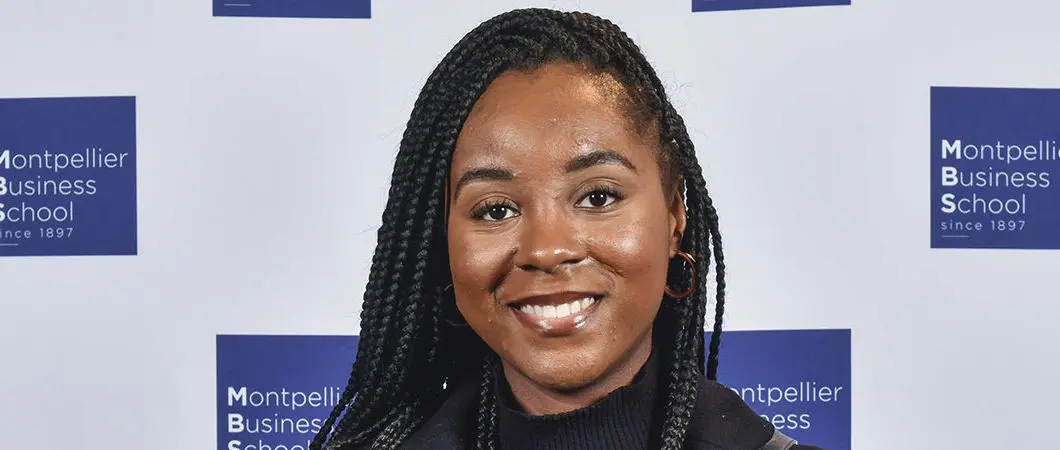
Get involved and invest in equal opportunities policy
The scholarships awarded by the MBS Foundation and its business partners celebrate the skills, the academic level and the potential of students for whom financial barriers could’ve prevented their ambition to pursue the studies they deserve.
“Three years ago, we created a new scholarship; i.e. the employee scholarship. Built entirely on donations made by MBS teams, it responds to the desire of many employees to commit and invest even more directly – beyond the scope of their mission – in equal opportunities policy prompted by MBS“, explains Sophie Gosselin, General Delegate of the Montpellier Business School Foundation for Equal Opportunities. “Employees are free to give what they want, and for most contributors, it’s the way to become part of a company policy they identify with“.
Rosine: a student of the Grande Ecole Programme, winner of the 2019 employee scholarship

At 25, Rosine joined the Grande Ecole Programme of Montpellier Business School via the Passerelle competition. “Following a bachelor’s degree in fashion in Reims, I immediately integrated the labour market. After a few years in sales and catering, I felt the need to resume my studies. I wanted to avoid regrets and this was my last chance to go back to school”, Rosine explains.
Rosine opted for a BTS in communication. Backed by her experiences and her good academic results, she managed to join MBS in September 2019. “I didn’t know that this scholarship existed. Finding out that employees from my school helped cover part of my tuition fees… this gives a new dimension to my journey. Today, I think it is important that I share with them what I intend to do with this opportunity. I plan to go abroad for 6 months, followed by 6 other months of internship in the cosmetics sector then finish my apprenticeship with the entrepreneurship specialisation”, says Rosine.
A Foundation entirely devoted to equal opportunities
MBS Foundation stands out by reinvesting all the donations it receives in actions in favour of equal opportunities. Its mission is to finance the various mechanisms aimed at helping students both socially and financially through grants.
It also supports and encourages entrepreneurship with the Young Innovative and Responsible Company prize which finances the project of young entrepreneur students and fresh graduates (less than 3 years).
Coronavirus: Montpellier Business School donates 24,000 masks to the Montpellier Clinique du Parc
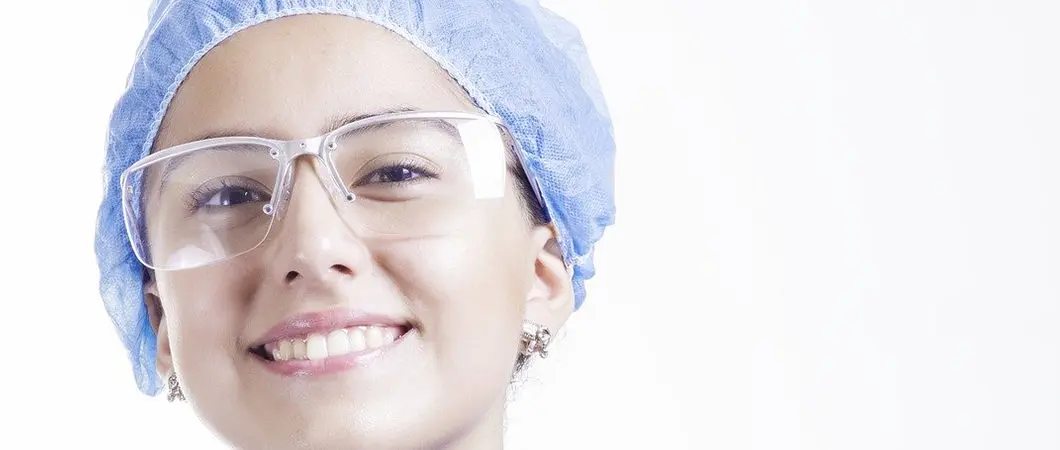
An international solidarity initiative resulting from an academic partnership
Solidarity initiatives are multiplying in the wake of the COVID-19 health crisis. The Montpellier Business School community is no exception: Dr. Cyril Foropon, initiated the donation project of 24,000 masks to the Montpellier Clinique du Parc.
“It all began with a message received on Friday, Marche 20th on the WeChat application by Professor Yu, head of our Chinese partner Shenzhen Zijing Education and Technology Co, LTD. “explains Dr. Cyril Foropon.
“As part of the Doctorate in Business Administration program that Montpellier Business School offers in the cities of Shenzhen and Xiamen, Professor Yu and his students wanted to actively contribute to the protection of all Montpellier Business School staff and students from the Coronavirus epidemic. This initiative is the result of their commitment to Montpellier Business School and its values. »
24,000 masks for the Montpellier Clinique du Parc
Initially, the partner offered to deliver 20,000 masks directly to Montpellier Business School. “As our campus is closed, we decided that this generous donation of 20,000 masks would be given free of charge to the Montpellier health care staff,” explains Bruno Ducasse, Managing Director of Montpellier Business School.
The Clinique du Parc was the one chosen to receive this donation. “The clinic welcomed this donation very favourably in a context of lack of masks. This donation is a breath of fresh air for the nursing staff,” explains Dr Philippe Foropon, project coordinator.
But the story doesn’t stop there. As Montpellier Business School was able to cover the transport costs, 4,000 additional masks were produced to reach a total of 24,000 surgical masks.


4,800+ hours of online courses available now for 3,300+ students
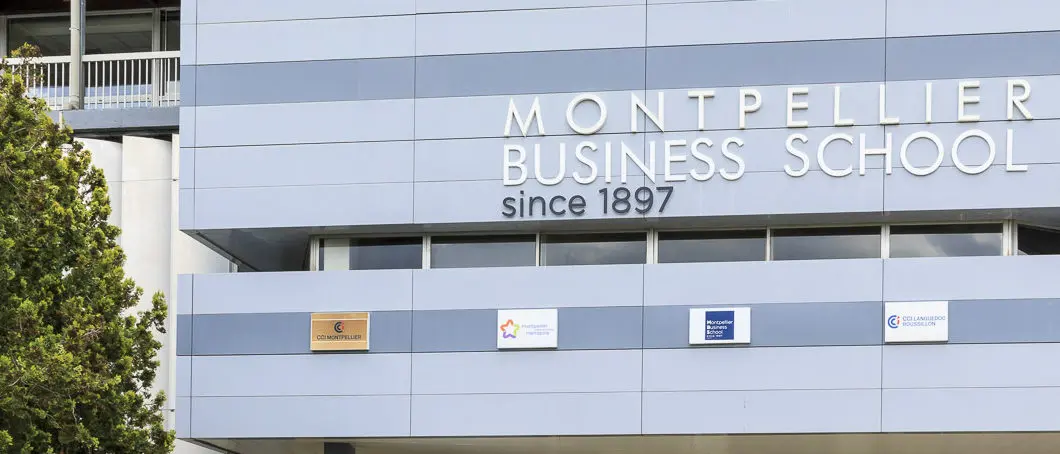
E-learning will take over as of March 23rd.
In view of the general health situation and according to national guidelines, the school decided to close its campus until further notice.
From March 23rd all students in initial training will have online access to all their courses and will be able to take exams and tests remotely.
More than 4,800 hours of courses are now available online for more than 3,300 students
This pedagogical continuity will allow students to take their exams in order to validate the number of ECTS credits they need to graduate.
All the departments of Montpellier Business School will be committed to guarantee the best possible academic quality in this exceptional context.
The pedagogical services will keep the students informed at the end of next week of the availability and the modalities.
For work-study students (apprenticeship)
From 16 March, work-study students will remain in companies. From March 23rd, they will follow the courses remotely.
Students who were supposed to be in class during the week of 16 March will have to free up time in the following weeks to catch up on these courses.
For international students
As the physical presence on campus is suspended, international or exchange students who wish to can join their country of origin. They will have access to the course and the distance exams under the same conditions.
If you have any questions, please contact your course director or the Incoming department Incoming@Montpellier-BS.com
About Entrance Exams
National and international entrance exams for Montpellier Business School are maintained. They will be adjusted to take into account health constraints and to preserve the fairness of the exams. We will keep you informed of the modalities as soon as possible.
Protect yourself and others
- Wash your hands very regularly
- Cough or sneeze into your elbow
- Throw tissue into closed bin immediately after use
- Avoid close contact when greeting people
To keep in touch
- A specific email address is available to answer all your questions: infocoronavirus@montpellier-bs.com
- The programs remain available:
o PGE: PGE Pédagogie pge.pedagogie@Montpellier-BS.com
o MSc: MSc Education msc.education@montpellier-bs.com
o Bachelor: Bachelor Pedagogy bachelor.pedagogie@Montpellier-BS.com
o EMBA: EMBA Pédagogie emba.pedagogie@montpellier-bs.com
- Coworkers : please contact your Manager and the DRH-DRSE /
- The government site regularly updates the latest recommendations: www.gouvernement.fr/info-coronavirus
- A toll-free number has been set up: 0 800 130 000
- The Ministry of Europe and Foreign Affairs provides advice to travelers: https://www.diplomatie.gouv.fr/fr/conseils-aux-voyageurs/conseils-par-pays-destination/
- A WHO FAQ answers the most frequently asked questions: https://www.who.int/fr/emergencies/diseases/novel-coronavirus-2019
Covid-19: Questions and answers for students in internship or work-study programs
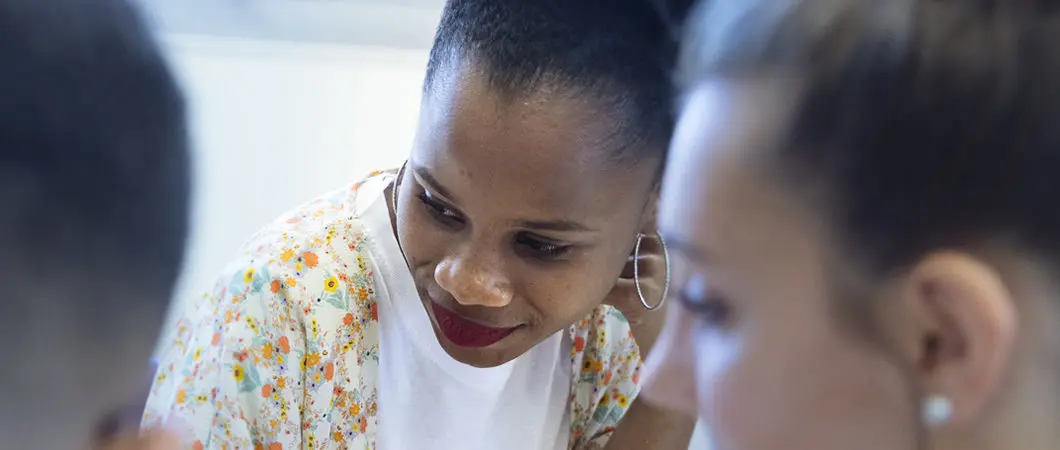
For work-study students (apprenticeship)
– “Remote working? Unemployment? How is this going to happen? “
Apprentices are employees of a company and have the same rights. The company must therefore offer the same solutions to its apprentices as to the rest of its teams, such as the right to work remotely if the equipment allows it, or the possibility of short-time working.
In the lack of solutions, the apprentice can contact his employer and the Career Center, which will be able to answer his questions.
Contact: Career Center CareerCenter@montpellier-bs.com
– “Do I have to go back to school? “
Physical presence on campus is suspended for all students. As of March 23rd, the online courses will be available.
During the weeks initially reserved for their presence on campus, the apprentices will have the possibility, with an internet connection, to stay at home to follow the lessons.
– “Will I be able to pass my exams? “
Students will be able to take their tests and exams remotely. This pedagogical continuity will allow students to continue their studies and to validate the number of ECTS credits they need to complete their semester.
For students in internships
– “My internship may be suspended. Can this prevent me from graduating? “
All the teams in the programs and at the Career Center are aware of the exceptional nature of the situation and are mobilized to ensure that the student’s career path suffers as few consequences as possible.
The teams will therefore be flexible in adapting and adjusting the validation criteria for the professionalization periods.
– “Do I have the right to benefit from remote working? “
Unlike apprentices, students on internships do not benefit from the same arrangements within the company. Depending on the collective agreement, remote working can be possible and has to be a priority. On the other hand, an internship does not allow for “chômage partiel”. If no measures to maintain the activity can exist, it is possible to settle a temporary suspension of the internship.
If you are a student in this case: you are not alone, the Career Center teams are available to help you in this situation.
Contact: Career Center CareerCenter@montpellier-bs.com
– “I’m a company hosting an MBS student and I don’t know how to handle this situation. “
The Career Center is available to help you in this exceptional situation. You can contact the Career Center as well as the students at the following address: CareerCenter@montpellier-bs.com
